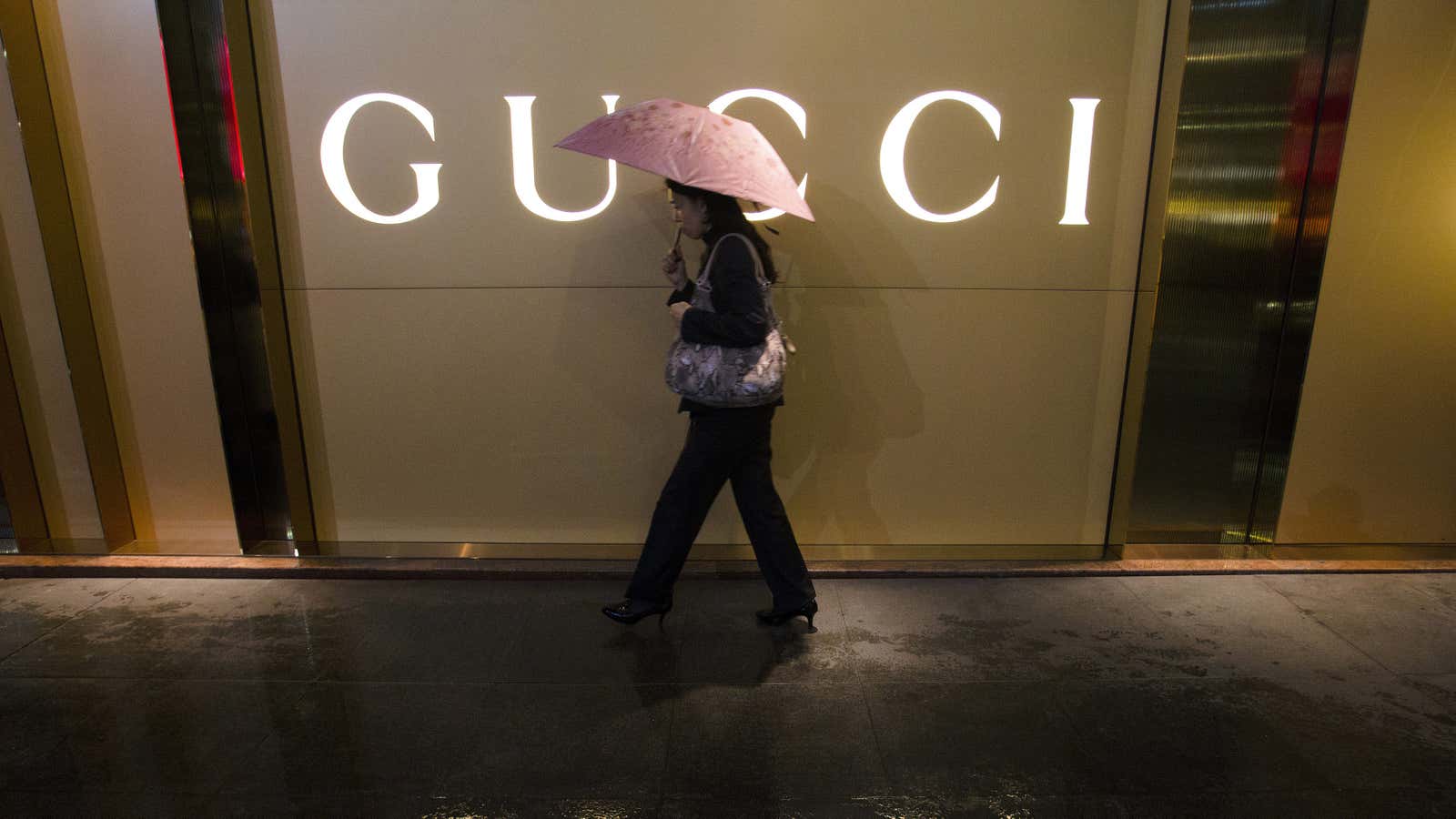China is currently the world’s fifth largest luxury market (pdf, p. 5), but that ranking doesn’t show the whole picture. Chinese luxury shoppers make many of their purchases while traveling outside the country. If you take that spending into account, they become the world’s biggest group of luxury consumers. That’s why, when China suddenly announced it would devalue the Chinese yuan by 2%, luxury brands and their investors shuddered.
Shares of Burberry, Ferragamo, and LVMH, among several others, all slid. Why? The purchasing power of Chinese spenders has abruptly dipped and, with the yuan devaluation, goods sold in China converted into euros or dollars on P&Ls will now account for less. Particularly for luxury labels that rely heavily on Chinese shoppers, the move could have a real impact on their balance sheets in the months ahead. The question is how much a change of 2%—which isn’t much—will have.
Ferragamo, for example, does 13% of its sales in mainland China, the Wall Street Journal reported (paywall). Tod’s, the Italian shoe and leather-goods maker, does 15% of its sales in China. And neither comes close to Prada. Last year, China accounted for a whopping 26% of its sales (pdf, p. 12). As Prada’s full-year earnings showed, Chinese policy has serious consequences for the company’s bottom line.
The currency move could hurt them, as well as ”accessible luxury” brands, such as Michael Kors and Coach, as their products become more expensive—but only slightly more expensive.
The bigger concern may be how it affects Chinese spending outside China, as Chinese travelers now face a yuan weakened in relation to other currencies. According to Luca Solca, a luxury goods analyst at Exane BNP Paribas, shoppers who are traveling account for 40% of global luxury-goods purchases. A significant portion of those purchases are made by Chinese tourists, especially lately as they’ve taken advantage of the weak euro and yen. Without that currency leverage, however, some of those sales are likely to dry up.
“Depending how deep the [yuan] devalues, this would reduce the amount of purchases abroad by Chinese tourists and daigous,” Solca tells Quartz. (“Daigous” are agents outside the country who purchase merchandise and bring it back to China on behalf of a buyer).
But even then, a 2% devaluation is “very little,” he says. In his view, it would take something more like a move of ”10% and above” to seriously change Chinese spending. China could even “repatriate” some of those purchases, he adds, as Chinese consumers shop at home rather than abroad.
Small changes in consumer behavior can add up across millions of purchases, though, which is why the 2% devaluation has luxury labels and shareholders on edge.
And then there is the lift given to those brands that make their goods in China, particularly fast-fashion labels like H&M. Suddenly, everything just got a little cheaper.




